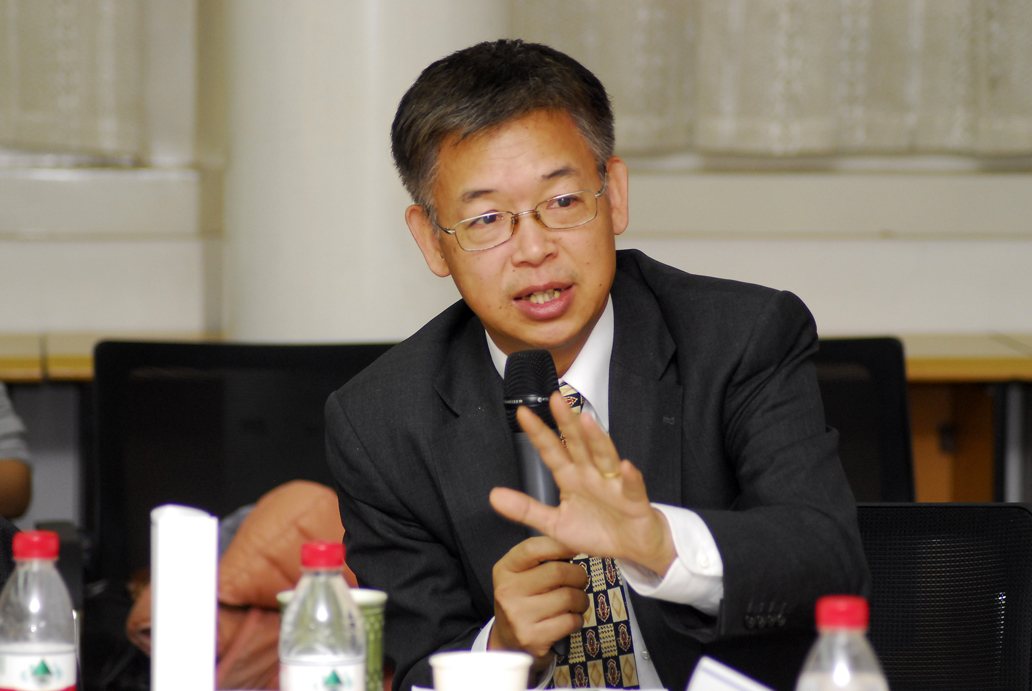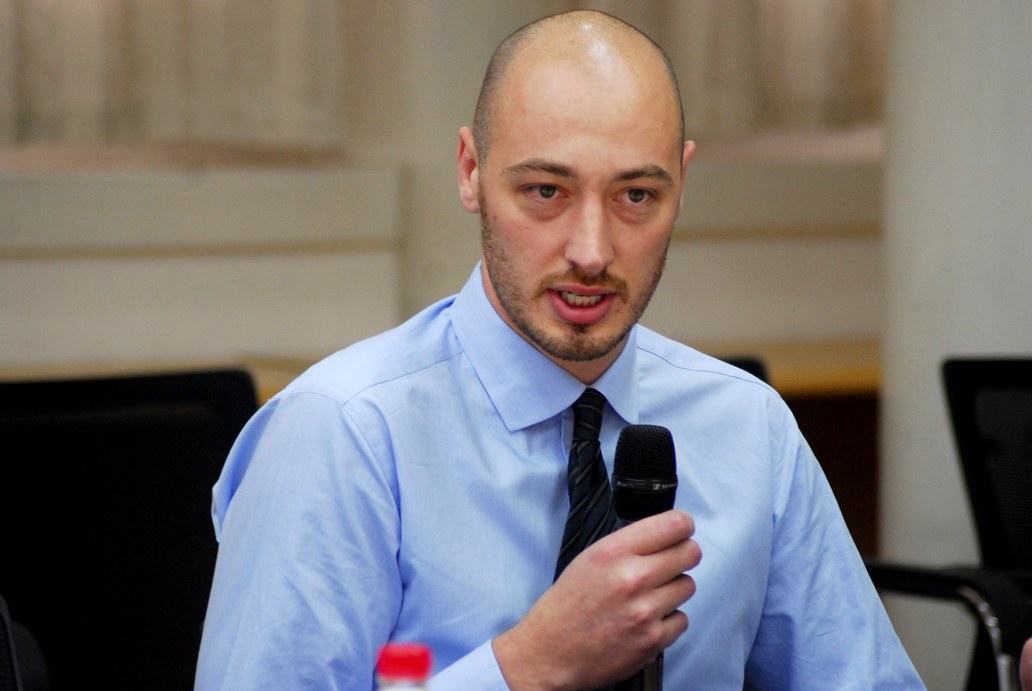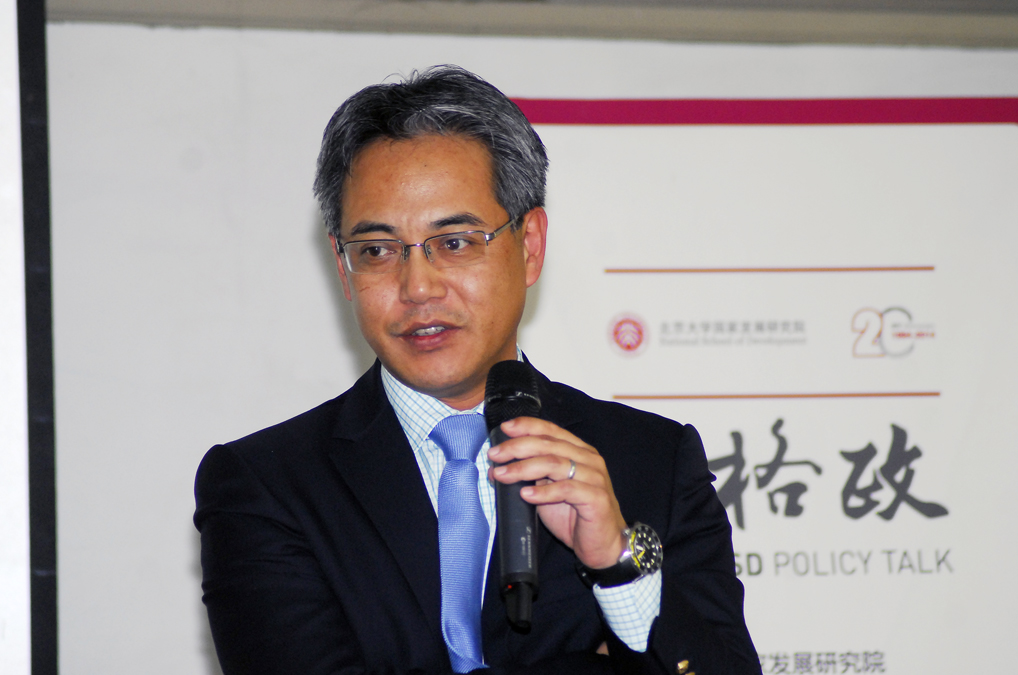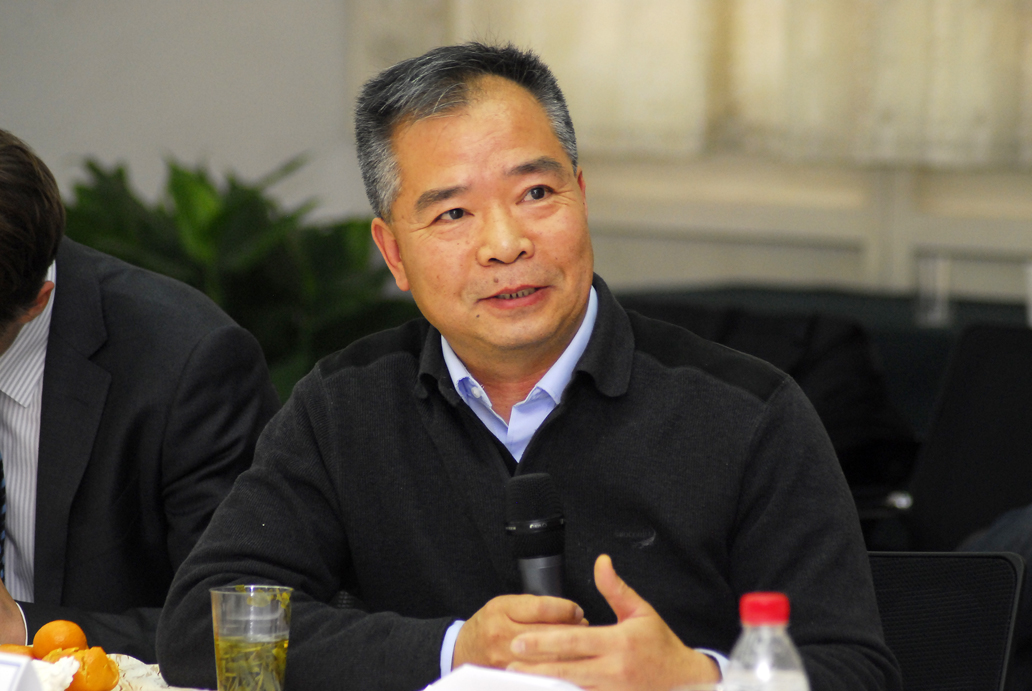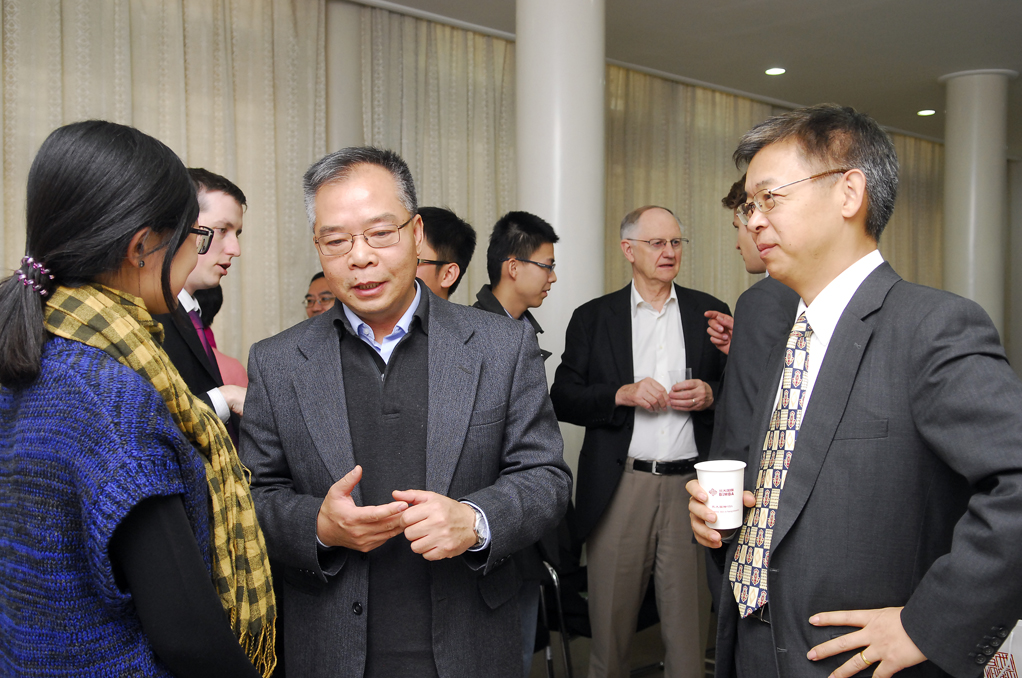
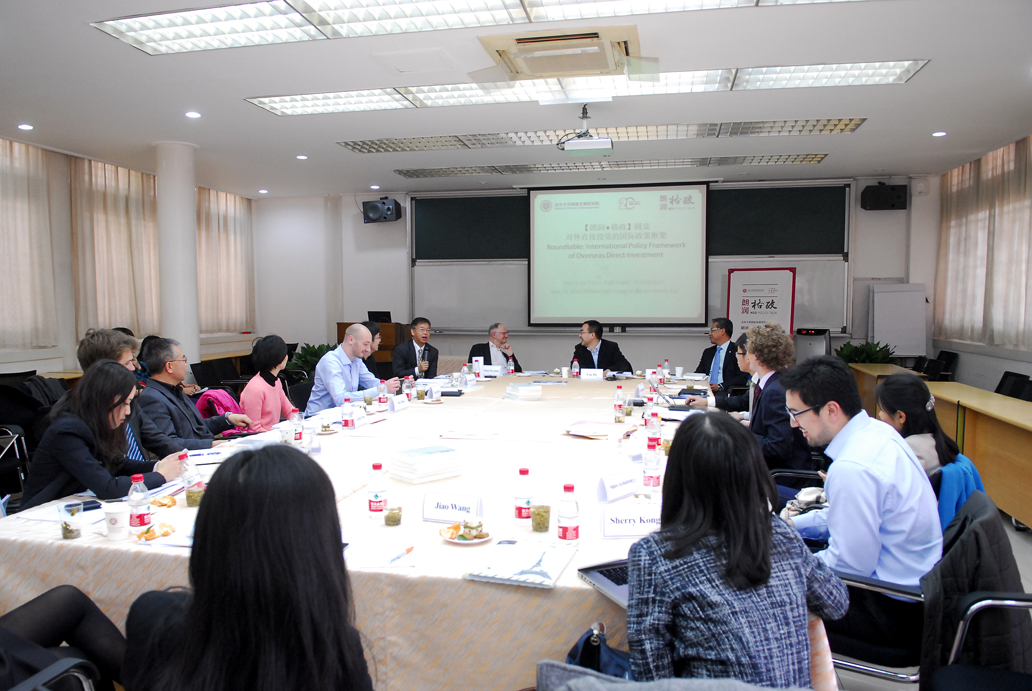
The 11th Langrun-NSD Policy Talk round table discussion successfully took place in Wanzhong Building in the Langrun Garden on November 23rd. The meeting was hosted by the National School of Development of Peking University, inviting nearly twenty professionals and scholars from the Australian National University, the Chinese Academy of Social Sciences, China Investment Corporation, the Chinese Ministry of Commerce, the Development Research Center of the State Council and the Australian Treasury, to investigate the latest concerns regarding China’s FDI, as well as current international investment policies and administrative frameworks.
This meeting was the fourth PKU discussion forum under the “China Foreign Direct Investment Research” program of the Office of International Relations (OIR), a program which has garnered both Chinese and foreign participation since 2009. The discussion was also part of a major program (serial code 11JJD790027) under the Ministry of Education’s Humanities and Social Sciences Key Research Base. Furthermore, the OIR research program recently received a three-year subsidy from the Australian Research Council, having already produced many significant findings in their research, as well as thesis collections published in the academic journals China & World Economy and the International Economic Review. The Peking University Press also recently published a thesis titled, “China Foreign Direct Investment Research,” coauthored by Huang Yiping, He Fan, and Zhang Yongsheng. At the same time, seven other theses have been delivered to the China Economic Journal editorial department for subsequent publication.
The National School of Development’s professor Huang Yiping, as the host for this meeting, began by expressing gratitude toward all participants. Professor Peter Drysdale from the Australian National University presided over the first round of discussions, which was primarily an introduction to overseas investment policies in China. Zhang Yongsheng from the Development Research Center joined in the discussion, providing information on the newest decisions concerning foreign direct investment and state-owned business reforms in the recent Third Plenary Session of the 18th Central Committee. Scholars now commonly believe that China is playing an increasingly larger role in international foreign investment policy. Professor He Fan of the Academy of Social Sciences points out, having state enterprises manage FDI models is not a problem, but further discussion on how to increase administrative efficiency and evade risks may be necessary. China’s road to successful development is long and arduous, and one that requires patience and hope. Moreover, China must rethink its cooperation with the United States, Europe, and other economic giants, as well as how to utilize current international trade and investment agreements.
In the following discussion segment, young scholars from China and Australia introduced Australia’s investment policies, environment, and changes that occurred in the past two decades, carefully analyzing and examining Australia’s FDI approval mechanism (FIRB).
Zhou Mi, a researcher from the Department of Commerce research institute provided a detailed introduction to the headway made by China recently on Australia’s foreign direct investment, especially current problems such as how to define the concepts of national interests and national businesses. Australian scholars described how FDI policy reform is significant in the series of reforms enacted since the establishment of the new Australian government. Meeting participants agreed that many fields in international economics have corresponding international organization and administrative frameworks, such as world trade, organizational management, and international trade. However, that international trade lacks a global framework. Many countries now rely on bilateral agreements to protect overseas investments, but this method is time consuming and costs a great deal of effort, and is difficult to reconcile. The ideal scenario would be to push for the establishment of an international foreign direct investment framework, an endeavor to which China and Australia can greatly contribute. The task group should also focus on giving theoretic and controversial support to this cause.
The afternoon session included a discussion on sovereign wealth funds (SWF), where a SWF executive from China proposed that risk concepts surrounding SWFs should differ from ordinary independent investment funds, primarily because SWFs are an organic component of domestic wealth. Thus, considerations of risk distribution should be placed within a larger wealth framework, and not simply SWFs themselves. Australian Treasury officials also expressed their viewpoints on SWFs. Professor Song Ligang of ANU summarized how political risk, government failure, macroeconomic stability, potential markets, labor costs, etc. may hinder increases in the scale of FDI, as well as commented on obstructive elements regarding the direction of capital flows. He further contended establishing and strengthening the importance of implementing policy frameworks from the business world, the government, and academia. The influence of national currency policies on investment was also touched upon. Subsequently, participating scholars initiated a preliminary discussion on an investigation proposal catered towards Chinese overseas investment companies.
Finally, meeting participants set the date for the next international discussion forum at July 2014, to be held at the Australian National University. The main focus of the discussion is to include post-Third Plenum state enterprise reforms, foreign direct investment, and the building of international administrative frameworks.
